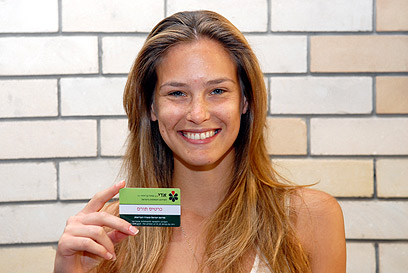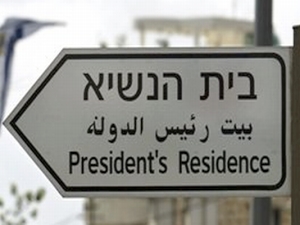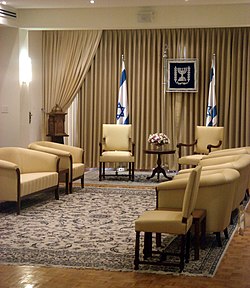It sounds trite, but it’s true.
Passover really is different in Israel.
Passover really is different in Israel.
For one thing, it’s unavoidable. During the week leading up to Pesach, the
upcoming holiday is very much in the air.
School vacation begins a few days before Pesach, so kids are very
much more in evidence. The supermarkets
are mobbed. So too are the hardware stores.
There’s a place near my apartment that reminds me of--you guessed it--Harvey’s in
Needham: it specializes in personal service and there is merchandise outside of the store as well as inside. Its tight aisles make it a great place for shmoozing. We and lots of other people in the neighborhood made several last-minute trips
there to purchase counter covers, new utensils, etc. More often than not, we were helped by the owner's son, who was home from school.
But the big difference is that the final preparations for
the holiday aren’t just done in private, as they are in the States.
They spill over into the street. Passover isn't just a religious holiday here; it's a national holiday.
For example, take a look at the picture below. In our neighborhood, a station for kashering
pots, pans, utensils and oven racks was set up to do hag’alah (dipping utensils into boiling water) and libun (blowtorching). All sorts of people lined up. Judging from their dress, they ranged all the
way from Hareidim (ultra-Orthodox Jews) to Hiloniim (secular Jews).
(On the other hand, the fellow in charge, to the left in the photo above, with his postage-stamp-sized kippah and long tsitsit, was definitely "Dati-Leumi"--i.e., Orthodox though not ultra-Orthodox.)
As one would expect, kids of all ages and all stripes get a real kick out of seeing a blow torch in action:
On the morning before Passover, pillars of smoke were rising from all of
the neighborhoods around us. Why? Because many people were doing “bi'ur hametz”—i.e., the "burning of hametz." But they weren't doing it individually. The city had provided large metal dumpsters. In the one below our
building, a roaring fire was raging by the time we got down there. Again, everyone made use of it to dispose of their bread, rolls, pasta and crumbs of all kinds:
By early afternoon, our street (normally bustling) was
quiet. Everyone, it seemed, was getting
ready for the seder.
We were, too.
Ordinarily, we would have been preparing for a seder with our
family. But not this year. This year, Elana and I were going elsewhere.
About a month ago, I volunteered to officiate at a seder at a battered women’s shelter at an undisclosed location. It turned out to be challenging, yet also deeply meaningful and fulfilling. Let me share just a few details to give you the flavor of the experience.
About a month ago, I volunteered to officiate at a seder at a battered women’s shelter at an undisclosed location. It turned out to be challenging, yet also deeply meaningful and fulfilling. Let me share just a few details to give you the flavor of the experience.
For one thing, certain passages in the haggadah
took on new meaning that night. Words like, “This
year, we are enslaved; next year, may we be free!” didn't sound like mere slogans. After all, the women at that shelter aren’t yet
where they’d like to be--where they have a right to be. Yes, they’re
on their way to freedom. They have found temporary shelter. They--and their kids--can go to sleep at night without fear.
And yet, they
aren’t fully free. They know that very well. They cannot yet allow people to know where they live. They know that danger is lurking just outside of the shelter. (When the time came to open the door for Elijah, it was clear that it was going to be
an interior one. The exterior door of the shelter is always kept locked, and is monitored constantly by closed-circuit television.)
And so that night was a ליל שמורים, a "night of watching" (just like the previous night, and just like the next one). Nonetheless, that evening was truly joyous and celebratory. The women, who came from many different countries of origin (including Russia, Ethiopia and Iran), prepared the food together, and there was a real spirit of cooperation and mutual support in the air. The women and their kids dressed up in all their finery. With open arms, they welcomed Elana and me, as well as two students from the Conservative Yeshiva whom we had brought along to engage and play games with the children. For that one beautiful night, those eleven women and their twenty-two children were free to celebrate our national saga of liberation, together with the rest of the Jewish people.
One other thing about that seder: By way of contrast, just the other day, I happened to see a portion of a Jon Stewart show in which (surpise, surprise) he made fun of Passover. At this seder, there was none of that. There was no "When are we going to eat?" from anyone. There was no apathy or indifference, and certainly no hostility. Only an authentic, earnest appreciation of the experience. It was refreshing.
The next day, the first day of Passover, was also different from what we generally see in the States. Once again, there were pillars of smoke throughout the land. The reason is that it’s become a tradition in Israel, for secular as well as religious Jews, to barbecue on the holiday, which is somewhat reminiscent of the description of Passover in the Bible (Exodus 12).
Hol Ha-Moed is different, too. It's when literally millions of Israelis of all varieties travel. Here are two pictures I took from a bus stop at a popular destination just outside of Jerusalem:
Here's another difference: although some kosher restaurants close for Pesach, many others remain open. And Passover food here is terrific. Pizza anyone? (It's quite good: you'd never know that the crust doesn't contain hametz.) And how about some ice cream, some premium ice cream?
(The signs make it clear that both the pizza and the ice cream are kosher for Passover.)
I have more to say, but it's getting late, so let me close by wishing everyone a joyous conclusion to the holiday. I am going to use the same words that Egged (Israel's national bus company) has been offering its many, many passengers this week. Here is the sign that appeared on the screen at the top of many of the buses I was on this past week:
(Translation: The staff of Egged wish you a happy and a kosher Passover.)
And I do too! Let me wish you a joyous conclusion to the holiday!
Sincerely,
Rabbi Carl M. Perkins
Here's another difference: although some kosher restaurants close for Pesach, many others remain open. And Passover food here is terrific. Pizza anyone? (It's quite good: you'd never know that the crust doesn't contain hametz.) And how about some ice cream, some premium ice cream?
(The signs make it clear that both the pizza and the ice cream are kosher for Passover.)
I have more to say, but it's getting late, so let me close by wishing everyone a joyous conclusion to the holiday. I am going to use the same words that Egged (Israel's national bus company) has been offering its many, many passengers this week. Here is the sign that appeared on the screen at the top of many of the buses I was on this past week:
(Translation: The staff of Egged wish you a happy and a kosher Passover.)
Sincerely,
Rabbi Carl M. Perkins
































